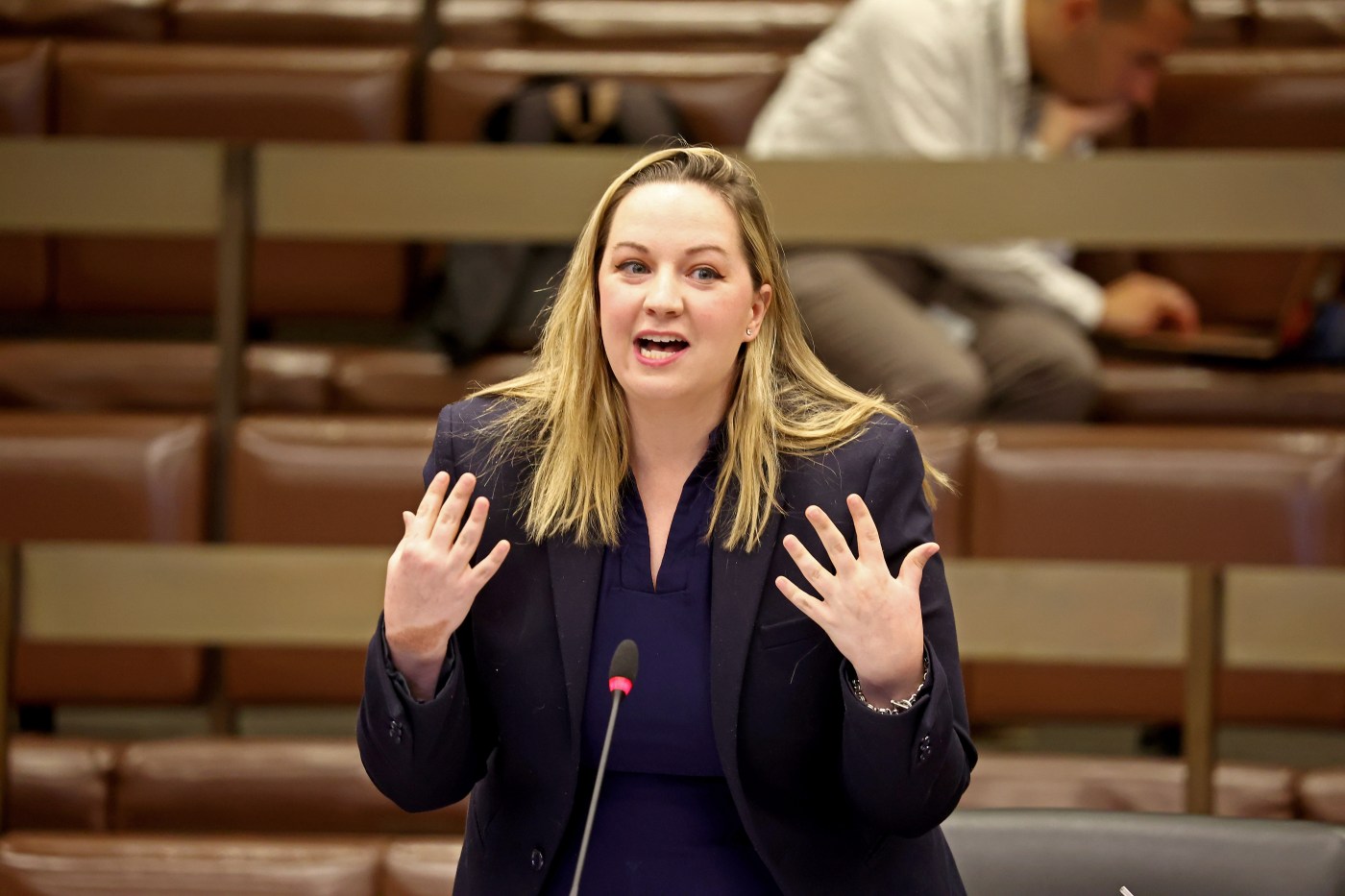
Boston City Council takes on public ‘disconnect’ with development
The challenges the city faces in revamping its “outdated” development review process to better reflect the needs of the community were on full display at a sparsely-attended City Council hearing focused on increasing public engagement.
Councilor Sharon Durkan, who chaired the subcommittee hearing on Monday, made it a point to mention the empty City Council chamber, likening it to the “disconnect” many residents have with development in the city.
“It’s one of the most fraught issues that we deal with in our city,” Durkan said. “To me, it just shows how disconnected the public is from what mechanisms actually drive development.”
The day’s hearing focused on how to resolve that disconnect, and reform the city’s development review process in a way that results in projects that are responsive to, and reflective of, the concerns and suggestions of the affected communities.
The series of rules governing development review in Boston is known as Article 80, a part of the city’s adopted by the Boston Redevelopment Authority in 1996, and referred to by several officials on Monday as “outdated.”
In a 2023 executive order, Mayor Michelle Wu charged the former Boston Planning and Development Agency with modernizing Article 80, to bring more predictability to development review, while also advancing “citywide goals of affordability, resilience and equity,” a presentation her administration shared at the hearing states.
The modernization is one piece of the mayor’s plan to overhaul planning and development in Boston. Testifying on behalf of the administration were members of the city’s first planning department in seven decades, created by a mayoral home rule petition that transferred staff and functions there from the BPDA.
Nupoor Monani, senior deputy director of development review, outlined a number of steps the Planning Department is taking to modernize Article 80, but said the administration has faced challenges with reaching the marginalized parts of the community that, per city officials, often feel shut out of the process.
“Very often, developers come in with grandiose ideas. They see an incredible opportunity to make money, which is always important, but they don’t necessarily look at the needs of the surrounding community and where they’re going to plant their new development,” Councilor Liz Breadon said. “And I think that’s where having a robust community process is very, very important.”
Part of the problem, Monani said, is the ways in which the city has traditionally reached out to the community for engagement in the review process, which dictates that public comment be solicited for the plan a developer has put forward, is no longer relevant to how most people seek out information.
The city is required to post a notice for development review in the Herald, for example, which prompted Breadon to remark that others like her, who read their news online and don’t get a paper copy, would not be aware of that communication method.
Monani said the Planning Department also targets community feedback through public meetings over Zoom, but they are typically held in the evening hours when many people don’t have time due to other obligations around childcare or working multiple jobs.
“The biggest takeaway for us has been, how you reach out to people really matters,” Monani said. “The methods really matter.”
She said the department began to have more success with reaching a more diverse population, when sending out surveys seeking input and meeting people where they were, such as at grocery stores.
To encourage more community input for future projects, Monani said the department is considering putting signage at a development site when plans for a project are filed, to ensure that neighbors are aware of a pending proposal.
Related Articles
Franklin Park’s White Stadium planned renovation moves forward despite legal spat
Boston agrees to pay $1 million to settle City Hall sexual harassment lawsuit
Massachusetts ranked among worst states for business as Boston pushes for higher taxes
Boston announces health initiative, $10M grant to improve life expectancy
Boston City Council exploring birth control to curb randy rats
Developers would also be required to submit an engagement plan as a first step in the review process, rather than leaving that as one of the last steps when a development plan is likely finalized, at which point it would be difficult to change.
While the city is targeting modernization of its development review process, Monani cautioned against an effort that would completely do away with the existing framework.
Other cities studied by the mayor’s team conduct all review steps and votes simultaneously to avoid duplication of steps and achieve more predictable timelines, for example, Monani said, but Boston is likely to stick with going through multiple boards because it sees “value in maintaining these checks and balances.”
“While Article 80 is not perfect, it provides a really robust framework,” Monani said. “The biggest takeaway for us was, don’t throw the baby out with the bathwater. While we are modernizing Article 80, and we’re fixing a lot that doesn’t work, don’t throw the whole thing out the window.”
Boston Mayor Michelle Wu (Nancy Lane/Boston Herald)


